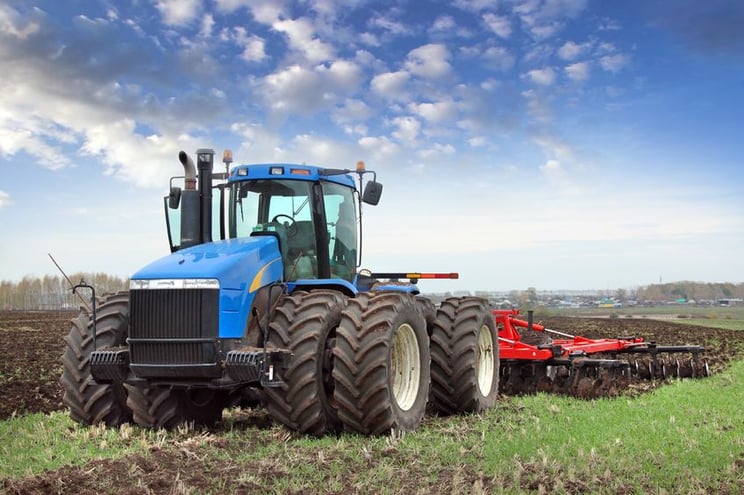
The laws applicable to agricultural equipment dealers in the United States vary from state to state. These laws are typically designed to protect farm equipment dealers from abuse by manufacturers and suppliers of agricultural equipment, while at the same time outlining the manufacturers and suppliers’ rights. Despite their relatively common goals, states have differing laws in this area. As such, it is important for manufacturers/suppliers and equipment dealers to understand the law, keeping in mind the procedures required or permitted in one state may be illegal in other states.
Iowa Code Chapter 322F regulates agricultural equipment dealership arrangements in Iowa. Every term of a dealership agreement that is inconsistent with this Chapter is void and unenforceable. Here is a summary of Iowa’s key legal provisions:
1) Iowa does not require notification to other dealers in the market area when a new dealership is being established
Iowa is not among the states that require a manufacturer/supplier to give written notice to existing dealerships in the area being assigned a new dealership. For instance, such requirements exist in Idaho, Alabama, California, Florida, Oregon and Washington.
2) A manufacturer/supplier can terminate a dealership immediately and without notice if:
- The dealer makes material misrepresentations to the supplier;
- The dealer transfers the dealership without the supplier’s consent;
- The dealer files voluntary bankruptcy or the dealership is subject to closeout or sale/liquidation of substantial assets;
- The dealer relocates without the supplier’s consent;
- The dealer defaults on a security agreement;
- The guarantee for the dealer’s obligations is revoked or discontinued;
- The dealer abandons business operations;
- The dealer pleads guilty or has been convicted of a felony; or
- The dealer’s conduct is detrimental to customers and public welfare (including misleading advertising, failure to provide reasonable services, or failure to honor warranty obligations).
3) Other “good cause” events allow a manufacturer/supplier to terminate a dealer upon 90-days’ notice
A dealer can be terminated (cancellation, non-renewal or change of competitive circumstances) if any of the following “good cause” events occur:
- The dealer fails to comply with essential and reasonable dealership requirements;
- The dealer consistently fails to comply with state licensing requirements; or
- The dealer inadequately represented the supplier’s products.
A supplier’s notice of termination must be in writing and delivered to a dealer by certified mail. The notice should specify each deficiency that gives rise to good cause for termination. Additionally, the notice must typically provide the dealer with 60 days to cure the deficiencies. In the case of a dealer’s inadequate representation of a supplier’s product, the supplier should give the dealer 18 months to cure such deficiency. If deficiencies are cured timely, the dealership cannot be terminated.
4) Upon termination, a manufacturer/supplier has 90 days to repurchase any returned equipment and parts from the dealer
A manufacturer/supplier is obliged to repurchase the equipment and parts returned by a terminated dealer which are free from any claims, liens or encumbrances within 90 days from the date the supplier took possession. The percentage of the net cost of equipment and parts to be repaid, and exceptions to the supplier’s obligation to repurchase, are listed in Iowa Code § 322F. Title does not transfer to the supplier until such payment is made. In addition, if a supplier fails to repurchase the equipment or parts in a timely fashion, the supplier shall pay 18% interest from the date the dealership was terminated.
5) A manufacturer/supplier can demand the renovation of dealer’s place of business
A manufacturer/supplier can require the renovation of a dealer’s place of business or an acquisition of new space as a condition to renew or extend a dealership only if the supplier gives at least 1-year notice with stated reasons for such renovations/acquisitions and provides a reasonable time for the dealer to complete the renovation or acquisition.
6) It is illegal for a manufacturer/supplier to:
- Coerce a dealer to accept equipment which the dealer did not order;
- Coerce a dealer to accept equipment with special features which were not included in the price list used by the supplier;
- Force a dealer to amend a dealership agreement, unless the same amendments are imposed on other dealers;
- Condition a dealership renewal on the renovation of the dealer’s place of business, if there are no reasons for such renovation;
- Require a dealer to refuse equipment from other suppliers; or
- Charge a dealer different prices than the prices charged to other dealers.
7) Manufacturer/supplier’s liability for breach
If a manufacturer or supplier violates Iowa’s agricultural equipment dealer laws, they may be required to pay the dealer for damages, as well as litigation costs and attorney fees. Additionally, a dealer may be granted injunctive relief to prevent the unlawful termination of a dealership.
For more information related to the agricultural field and its ever-changing laws contact the Goosmann Law Firm at info@goosmannlaw.com or (712) 226-4000.






Let Us Know What You Thought about this Post.
Put your Comment Below.